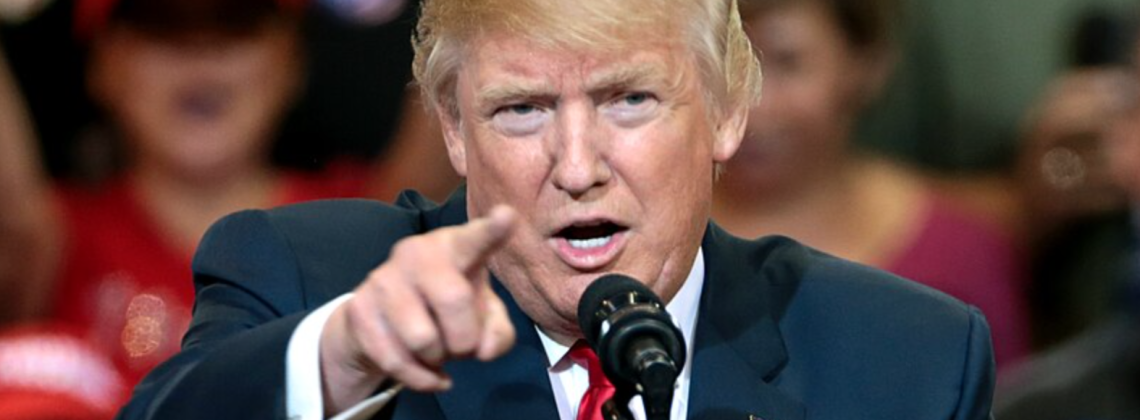

A time to weep, a time to laugh
Donald Trump has won his second presidential term. What does this mean—for us as individuals, for our country, and for the world? Today is the first in a series of reflections on the revelations of this election season and the new moment it has ushered in.
***
The American people are just regular folk
“Donald Trump is heading back to the White House,” writes Annie Lowery in The Atlantic, and “he has inflation to thank.” She’s not alone and she’s not wrong. Call it James Carville’s revenge—he of the motto, “It’s the economy, stupid!”—though Carville himself missed it this time.
Which is strange given that the situations in 2024 and 1992 don’t lack for similarities. By the summer of 1992, the brief Bush recession was over and the economy was growing, but Carville understood that voters’ sense of things lags behind actual performance. The recession was over—but not in the minds of the people. By the summer of 2024 the perilous inflation of Biden’s early term was over too, but voters didn’t feel it. They kept saying inflation, but what they meant was “The cost of living is too high.”
Reversing the cost of things would require a recession, and no one wanted that, so Harris, while making gestures at the country’s economic woes, stressed what she thought the voters should be concerned about: democracy.
But in a strange paradox, it was democracy that defeated her messaging. In a democracy, the people get to decide what is a problem and what isn’t. If the people are saying what’s bugging them is inflation, it’s not for the candidate to tell them they’re wrong. It’s the candidate’s job to figure out what they mean. (In this case, the cost of living, of health care, of housing, plus the general doldrums many of us have been in since the boom days ended in the early seventies.)
Has America let the founders down, selling our birthright for the promise of cheaper groceries? Maybe. But the founders weren’t naive. When they named “the pursuit of happiness” as part of the purpose of the nation they were creating, they understood it in material terms: a roof, food, security. Good things all. The American people are just regular folks, not a convention of philosophers. It’s useful to keep that in mind.
John H. Haas is a retired professor of history and Contributing Editor at Current.
***
The Harrison option
Two hundred years ago, respectable Americans across a wide range of views were deeply relieved by the outcome of the presidential election of 1824, in which John Quincy Adams defeated Andrew Jackson for the presidency. (Jackson won pluralities of the popular vote and Electoral College; Adams prevailed when Congressman Henry Clay threw his support to him and was then named Secretary of State, a deal dubbed a “corrupt bargain” by Jackson supporters.) The surviving Founding Fathers considered Jackson, whose dubious conduct included a freelance invasion of Florida, a dictator in the making. Thomas Jefferson called him “one of the most unfit men I know for such a place. He has very little respect for law.”
Four years later Jackson won the White House in a landslide. And four years after that, he won vindication (again) in re-election, defeating Henry Clay. (And four years after that, his hand-picked successor, Martin Van Buren continued the streak.) Jackson’s impact on American politics was profound; it was on his watch that words like “party” and “democracy” ceased to be four-letter words. The Founders, after all, had all been republicans—lower case, of course.
By 1840, opposition to Jackson, which gathered around Henry Clay to form the Whig party, decided that if you can’t beat ’em, join ’em: They nominated William Henry Harrison for president in the so-called “Hard Cider and Log Cabin” campaign. The notion of Harrison, a member of the Virginia planter aristocracy, as a man of the people was ridiculous. But the messaging worked: Harrison was elected. And then he died a month later. His successor John Tyler—“His Accidency”—essentially returned to business as usual. It took another generation for the Whigs to generate a more authentic log cabin politician—one with a towering intellect to match his political skills—who would ascend to the presidency.
It’s time to break out the hard cider, Democrats.
Jim Cullen’s books include The American Dream: A Short History of an Idea that Shaped a Nation and Born in the U.S.A.: Bruce Springsteen in American Life (third edition, 2024).
***
Make misogyny acceptable again? Check.
What a wild time to be a woman in America! Of the two major parties, one ran a candidate with a half-century-long record of sexual misconduct, while the other ran a candidate whose ability to articulate any kind of coherent policy revolved around one issue only—abortion access. Making matters worse, the party in question tried to sell this candidate to women as a “women’s candidate,” the best chance for “the first woman president.” Surely all women would happily support her just based on that, right?
We now know how this turned out. Harris received a lower percentage of women’s vote than Biden. It appears that “Democrats Picked the Wrong Women’s Rights Issue.” And it is clear that I was far from the only woman disgusted with the Democrats’ insulting strategy of selecting an unacceptable candidate and trying to effectively blackmail women into supporting her nevertheless.
But then, the problem isn’t just the candidate. The problem appears to lie with the party—with both major parties, in fact. What does the leadership of both parties think about American women if it nominates candidates like these? What does the GOP party leadership think about American women if it deemed qualified for candidacy someone accused of sexual misconduct by at least twenty-six different women since the 1970s? But then, what does mainstream media think about American women if it repeatedly spins Harris’s loss as evidence of the voters’ sexism, rather than that of the party that nominated her? “Kamala Harris’ loss is another setback for US women,” claims Reuters. Harris lost because she’s a woman, claims The Daily Beast. “After two presidential losses, women wonder what it will take to shatter the glass ceiling,” mournfully reports CNN.
I can answer this last question: It will take a good candidate. Indeed, I’m not alone in thinking that Harris’s gender had nothing to do with her loss, but that her outright disrespect of conservative women had everything to do with it. She wasted the opportunity to appeal to women appalled by the candidacy of an accused rapist with whom no woman would ever want to be alone in the room.
Still, in the battle of two misogynists, one had to win. For American women, this election was going to be a loss, one way or another.
Nadya Williams is the author of Cultural Christians in the Early Church, Mothers, Children, and the Body Politic: Ancient Christianity and the Recovery of Human Dignity, and Christians Reading Classics (forthcoming, Zondervan Academic, 2025). She is Managing Editor for Current.
My daughter sent me this as a response to the first entry:
https://www.youtube.com/watch?v=hYTQ7__NNDI
Nadya is spot on here, as usual. It is appalling how little Kamala Harris could even begin understand conservative positions on abortion. Everyone should be in favor of reducing the number of abortions, but Harris was just hell bent on sounding like abortion itself was a good somehow, making it almost impossible for pro life feminists to support her. Really sad.